Radio-jamming Dis/Connect chandelier prevents people from using their smartphones
Brooklyn-based designer Eric Forman has created a chandelier that blocks wireless signals below it to create "spaces of digital quiet".
Called Dis/Connect, the light features ten radio-jamming antennae where the candles would traditionally sit.
These interfere with the wireless communication of devices brought within a five-foot (1.5-metre) radius below the chandelier so people are unable to browse the internet or make calls.
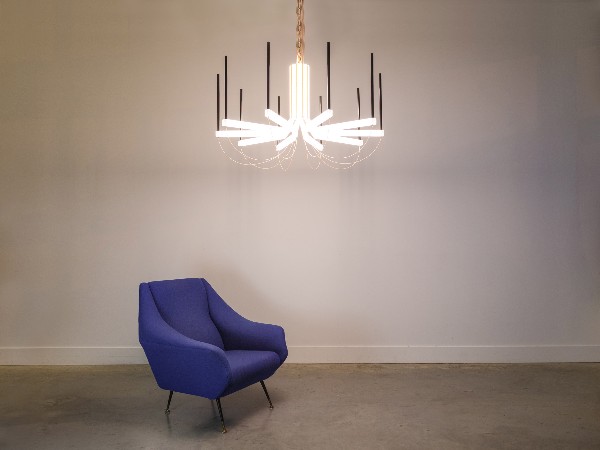
The chandelier was designed by Eric Forman
Forman created Dis/Connect in collaboration with artist Ben Luzzatto and engineer Daniel Gross to help people get off their phones.
"To be wholly present with ourselves and each other, we must design new tools to create spaces of digital quiet in our homes," Forman said.
"It's not that we can't turn our phones off, it's that we don't – they are too addictive," he said.
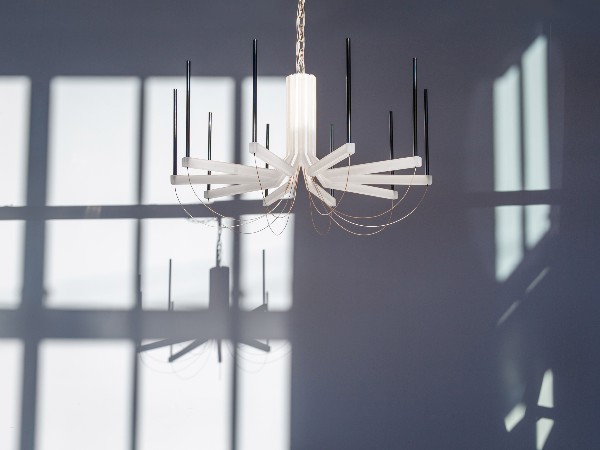
Dis/Connect has a body of translucent acrylic
Dis/Connect's design inverts traditional chandeliers. While the antennae that take the place of lighting elements are black, the central column and arms are made of acrylic that illuminates.
"We machined translucent acrylic to give it a modern, slightly sci-fi feeling, something that feels a bit alien but is still welcoming," said Forman.
The wires that feed the signals to the antennae hang in curves that mimic the ornamentation of a classic chandelier.
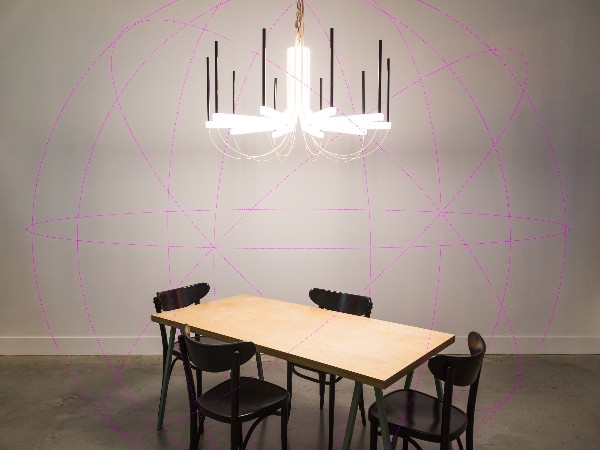
The chandelier disrupts the signal of devices in the vicinity
Radio jamming works by using a strong radio signal to overpower other frequencies in the vicinity.
"Think about having a reading light so bright that you couldn't see the pages of your book, but only when sitting below it," said Forman.
The chandelier is designed to block signals in a limited area. People have the option to step outside of the zone in order to reconnect to the internet or make a call.
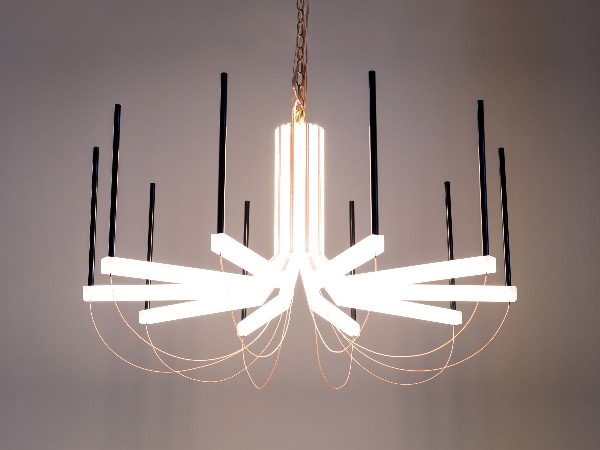
Dis/Connect inverts the form of a traditional chandelier
Dis/Connect is an art piece rather than a commercial project, as signal jamming is currently illegal in most countries including the US and the UK.
However, Forman, Luzzatto and Gross believe that this kind of technology should be made available in both public and private spaces. The team is planning a campaign alongside the artwork.
"We have a petition ready to file with the US Federal Communications Commission," said Forman. They hope this will open a conversation with the public about domestic signal jammers.
"We want the public comments phase of that to be part of the project," he added. "Not to say we have the answer, but to open up the debate."
Dis/Connect is the latest project designed to help people spend less time on their phones. London design studio Special Projects made envelopes that turn smartphones into a calculator, while Light Phone by Joe Hollier and Kaiwei Tang is a device that only allows calls.
(Photography is courtesy of Eric Forman.)













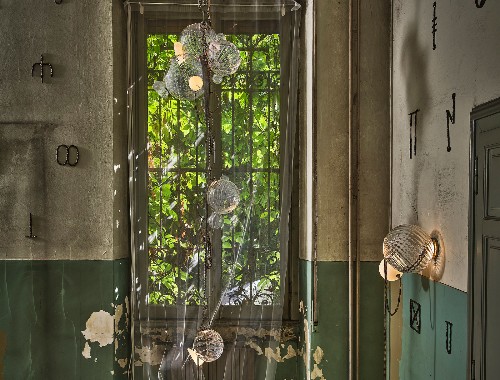
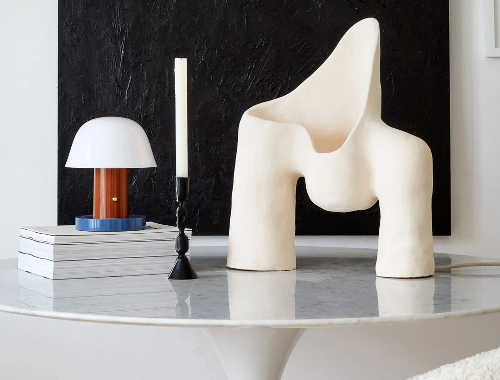
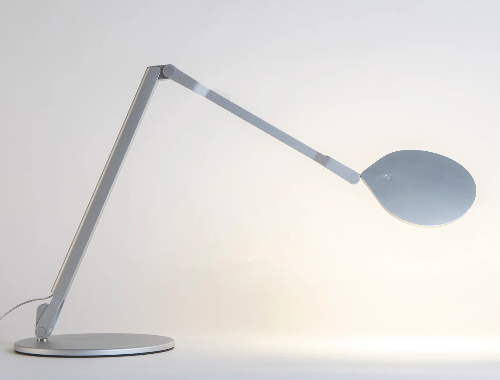
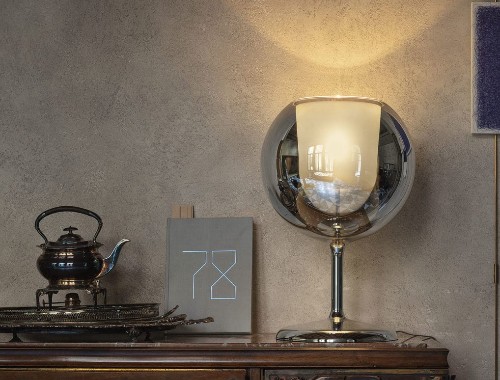













 沪公网安备31010402003309号
沪公网安备31010402003309号